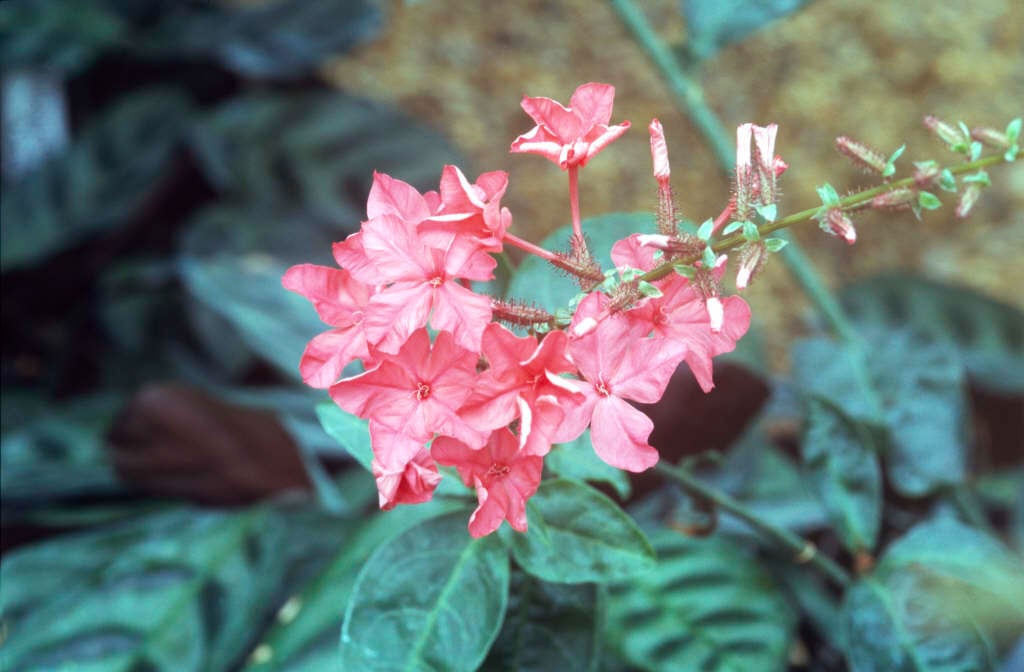Plumbago indica
Indian leadwort
An evergreen shrub of lax, scandent habit, with slender stems carrying ovate leaves and terminal racemes of deep rose-pink flowers 2cm across, in autumn or winter

Size
Ultimate height
1–1.5 metresTime to ultimate height
10–20 yearsUltimate spread
0.5–1 metresGrowing conditions
Moisture
Well–drainedpH
Acid, Alkaline, NeutralColour & scent
| Stem | Flower | Foliage | Fruit | |
| Spring | Green | |||
|---|---|---|---|---|
| Summer | Green | |||
| Autumn | Pink | Green | ||
| Winter | Pink | Green |
Position
- Full sun
Aspect
South–facing or East–facing
Exposure
Sheltered Hardiness
H1CBotanical details
- Family
- Plumbaginaceae
- Native to GB / Ireland
- No
- Foliage
- Evergreen
- Habit
- Bushy
- Potentially harmful
- Skin irritant. Wear gloves and other protective equipment when handling. Pets: Skin irritant - Harmful if eaten, except ripe fruit. Wear gloves and other protective equipment when handling. Pets (dogs): Skin irritant - for further information and contact numbers regarding pets, see the HTA guide to potentially harmful plants
- Genus
Plumbago can be annuals, perennials or scrambling evergreen shrubs, with simple leaves and short terminal racemes of salver-shaped flowers with 5 spreading lobes
- Name status
Correct
- Plant range
- SE Asia
How to grow
Cultivation
Under glass grow in a peat-free, loam-based potting compost in full light. When in growth water freely and apply a balanced liquid fertiliser monthly. Water sparingly in winter. Can be grown outdoors in warmer climes in most fertile soils
Propagation
Propagate by seed sown at 13 to 18°C in spring or take semi-hardwood cuttings in midsummer with bottom heat. Softwood cuttings can be rooted in late spring or early summer
Suggested planting locations and garden types
- Patio and container plants
Pruning
Pests
May be susceptible to glasshouse red spider mite and glasshouse whitefly
Diseases
Generally disease-free
Love gardening
Sign up to receive regular gardening tips, inspiration, offers and more
View our Privacy Policy
Get involved
The Royal Horticultural Society is the UK’s leading gardening charity. We aim to enrich everyone’s life through plants, and make the UK a greener and more beautiful place.